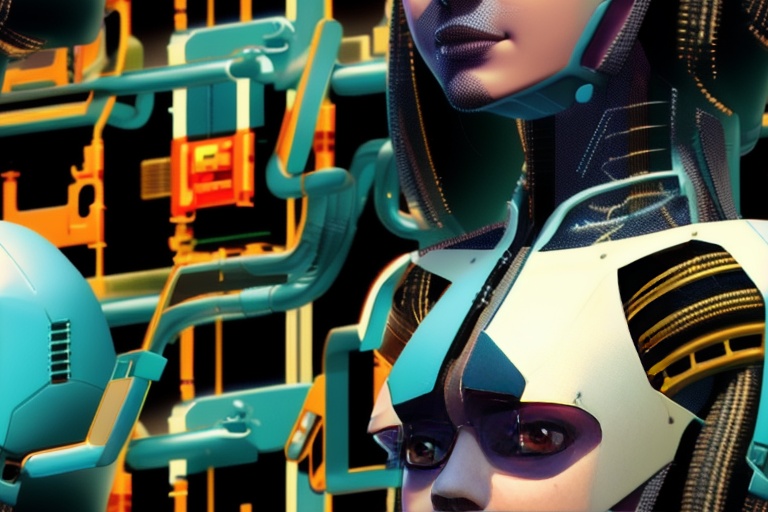Artificial Intelligence (AI) and machine learning are at the forefront of cutting-edge technology, promising to transform countless aspects of our lives. From revolutionizing industries to unveiling new frontiers in healthcare, the potential of these technologies seems boundless. But as their capabilities advance, a mix of excitement and caution has surfaced among experts regarding their implications.
Artificial Intelligence (AI) and machine learning are at the forefront of cutting-edge technology, promising to transform countless aspects of our lives. From revolutionizing industries to unveiling new frontiers in healthcare, the potential of these technologies seems boundless. But as their capabilities advance, a mix of excitement and caution has surfaced among experts regarding their implications.
The debate on AI autonomy is multifaceted. Tech expert Tom Ditterich expresses a cautious stance, urging the importance of maintaining control over fully autonomous systems. He highlights the necessity for human intervention, particularly in areas involving driverless cars, autonomous weaponry, and medical procedures reliant on robotics.
This level of unease extends to the workforce, where the rise of automation stirs anxiety comparable to past revolutions. As commentator Claire Foges recounts, resistance similar to that of the 19th-century Luddites reemerges as forecasts predict significant job displacement—up to five million affected. The fear is not unwarranted; automated systems are swiftly penetrating various sectors, with potentially stark ramifications on employment.
Yet, proponents of AI maintain a different perspective. They remind us that concerns over job redundancy and societal upheaval are not novel. Each technological leap has incited fear, yet also delivered remarkable benefits. Echoing this, Ai's current applications are impressive: enhanced fraud detection systems and notable advancements in the diagnosis and treatment of diseases. Proponents propose that our wariness should not be attributed to the technology, but rather to our underestimation of human capability. They assert that our creations, if they possessed awareness, would likely stand in awe of their creators.
Moreover, the optimistic view endorses technological progress as inherently beneficial. Throughout history, innovations have streamlined life, increased safety, and forged new paths for human endeavor. The automation that has rendered certain jobs obsolete has concurrently laid the foundation for novel opportunities, enriching our quality of life.
Sub-headings for subsequent sections could be as follows:
Understanding AI Autonomy and the Need for Control
The Impact of AI on the Workforce: Progress or Peril?
Embracing AI: Innovations and Skepticism in Modern Technology
Balancing the Scales: Human Oversight in an Automated World
The AI Debate: Navigating Ethics, Progress, and Future Implications
The discourse on the consequences of AI is as intricate as the technology itself. Critics voice legitimate concerns over the loss of human autonomy and the inevitable shift in labor dynamics, while supporters highlight the myriad ways AI could enhance our existence. It is vital to approach these conversations with a careful balance to guarantee that AI's evolution reflects our collective values and aspirations. The discourse on AI is not solely a question of technological capacity but also a challenge in aligning our advancements with ethical considerations.
Moreover, while the predictions about job loss and machine autonomy warrant attention, it's crucial to recognize that these are not the only dimensions of AI's impact. AI's potential extends to solving complex global challenges, improving education, and even augmenting human creativity. These facets of AI innovation present a more full-bodied picture of the opportunities on the horizon.
As we stand at this pivotal point in technological history, we must remain vigilant, considerate, and adaptive. The guiding principle should be to foster an environment where AI serves as an extension of human intent and potential, not as an unchecked force with its own agenda.
In crafting the future of AI and machine learning, dialogue between technologists, policymakers, and the public should be ongoing. Only through a collective commitment to responsible development can we harness the full promise of artificial intelligence and ensure that it remains aligned with the betterment of society as a whole.
Information for this article was gathered from the following source.




